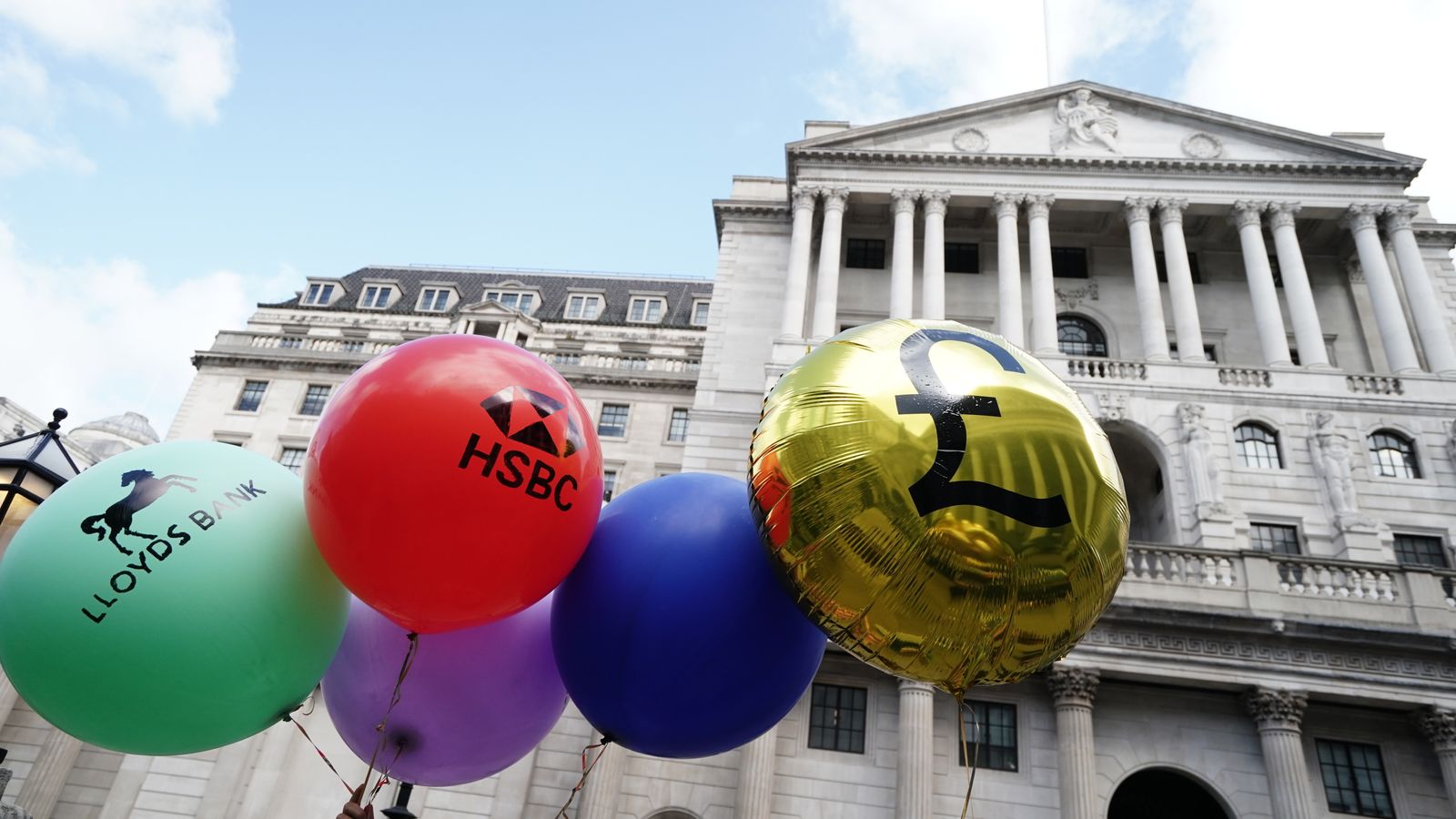The Bank of England’s interest rate decision is on a knife edge, with the regulator considered as likely to make borrowing more expensive today as it is to maintain the current rate.
The odds of a hike versus holding rates are nearly 50-50 – with money markets betting on a 46% chance that the base interest rate will be increased to 5.5% and a 54% chance it will remain at 5.25%.
The announcement will come at midday.
The outcome of the Bank of England’s meeting to consider rates had previously been seen as near certain. But the latest official inflation data caused market expectations to change, when the rate of price rises came in lower than expected.
Before the inflation data was released, the vast majority of economists and financial markets expected a final hike of 0.25 percentage points would be imposed.
That reduced rate of inflation has signalled the Bank may be nearing the end of its programme of increases.
Rates have gone up 14 consecutive times in an effort to encourage saving and reduce spending. The Bank is attempting to take money out of the economy and slow the rate of price rises.
Mortgage rates had increased to more than 6% for both two and five-year fixed-rate deals.
If there were to be an increase in the base interest rate it would bring mortgage bills higher.
The average monthly mortgage bill for a five-year fixed deal would be £388 higher than when the Bank began upping rates in December 2021, according to financial information firm Moneyfacts.
For standard variable (SVR) mortgages, another hike would see bills rise to £313.83 more when the rate rises began in 2021, according to banking lobby group UK Finance.
For tracker mortgages, the additional expense would be £566.35, the group said.
Read more
Caution important despite government confidence over inflation surprise
Inflation figures may shift dynamic in cost of living crisis but rate rise still likely
While the majority of the UK population are renters, many mortgage payers are yet to feel the full effect of rate rises, as they are still on low interest rate deals secured in previous years.
The majority of mortgage holders are on fixed-rate deals, 2.4 million of which were to expire from July to the end of 2024, UK Finance, the banking industry trade body said.
It is a significant increase from the years of ultra-low interest rates. Less than two years ago, in October 2021, the average rate on a five-year deal was 2.55%.
The Bank may follow the Federal Reserve, the US central bank known as the Fed, in holding the base rate after 14 consecutive rises.
